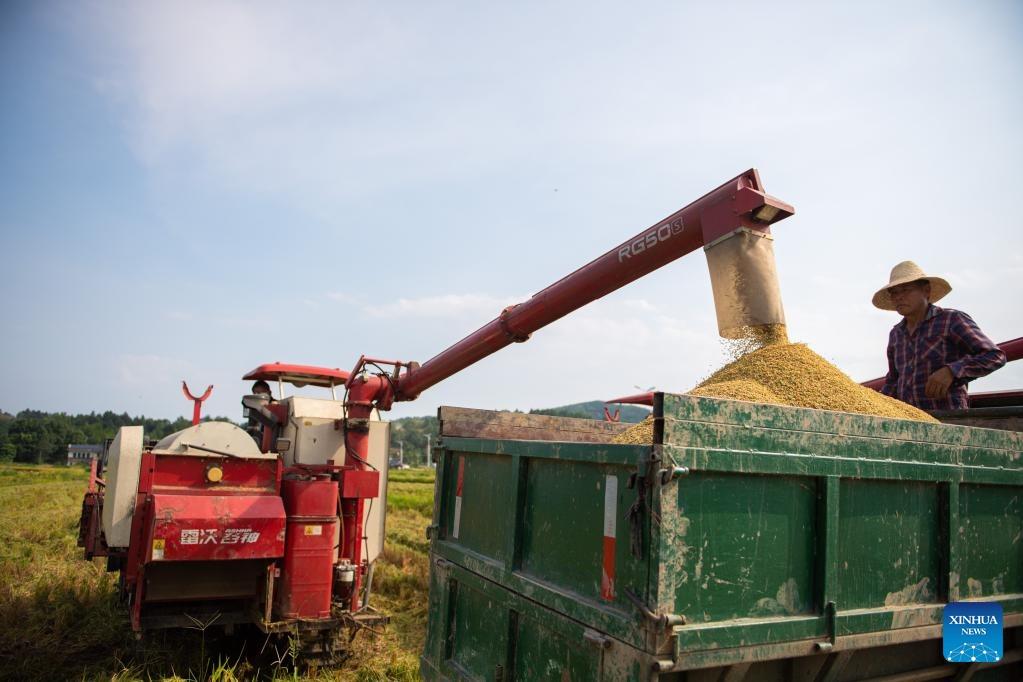 This file photo taken on July 16, 2022 shows farmers loading the harvested rice in Xuefengshan village of Taojiang county, central China's Hunan province. (PHOTO / XINHUA)
This file photo taken on July 16, 2022 shows farmers loading the harvested rice in Xuefengshan village of Taojiang county, central China's Hunan province. (PHOTO / XINHUA)
BEIJING - The World Bank has approved a loan of $255 million to support a program that will reduce methane emissions and improve irrigation and drainage services in rice production in central China's Hunan province, the bank's Beijing office said Thursday.
The program, with a total investment of $1.24 billion financed by the World Bank loan and Chinese government funds, will spend five years developing a sustainable rice production model and creating replicable and scalable knowledge and experiences for China and other rice-growing countries
The program will contribute to boosting climate resilience in rural areas and reducing greenhouse gas emissions in grain production, according to the bank.
The program, with a total investment of $1.24 billion financed by the World Bank loan and Chinese government funds, will spend five years developing a sustainable rice production model and creating replicable and scalable knowledge and experiences for China and other rice-growing countries.
ALSO READ: World Bank economist upbeat about China's growth prospects
Mara Warwick, World Bank Country Director for China, Mongolia, and Korea, said the program will provide innovative solutions to promote climate mitigation in China's agriculture sector.


